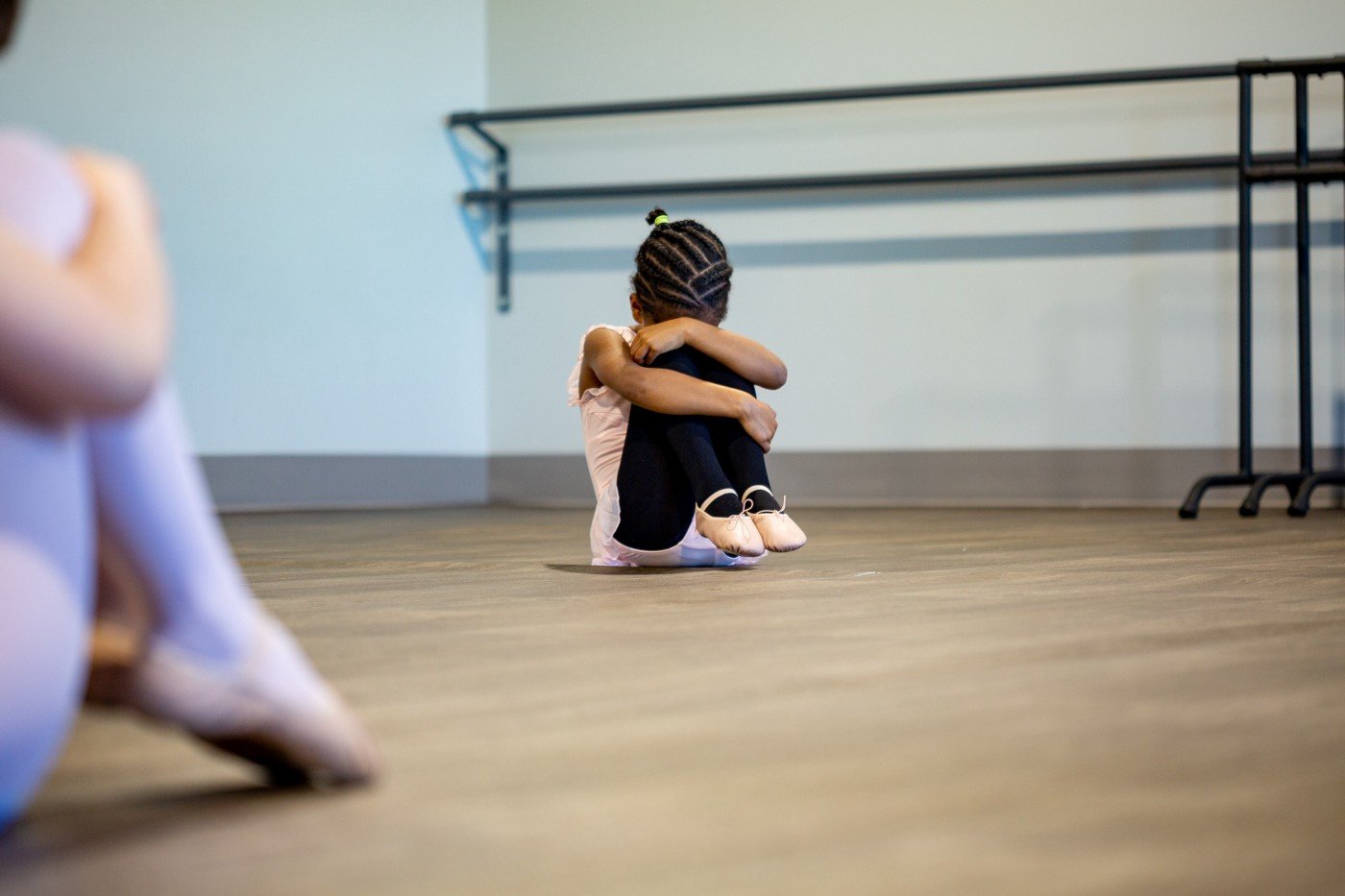8 Ways Any Parent Can Help Their Child Manage Anxiety

As parents, it’s only natural to want to protect our kids. But, when it comes to anxiety, “protection” doesn’t necessarily set our kids up for success.
Here’s what that means:
When we anticipate the things that make our kids feel scared or anxious and do our best to protect them from those triggers, we actually do them a disservice. When kids regularly avoid the things that make them scared or anxious, they’re not equipped to handle hard emotions and experiences when they come.
Our goal as parents is not to eliminate anxiety, but to help a child manage it. This is especially challenging at first — especially when they’re upset over going to school, throwing a tantrum before practice or otherwise showing signs and symptoms of anxiety. With your help learning to manage their emotions, their anxiety should decrease over time.
How do I help my child cope with anxiety in a healthy and meaningful way?
1. Express positive but realistic expectations.Unless your child is afraid of a dinosaur in their closet, you really can’t promise that their fears won’t come true.
You can’t guarantee that they won’t play poorly at their soccer game or that other kids won’t tease them on their first day at a new school or that they’ll have a blast at a friend’s birthday party if they “just go”.
You can, however, remind them that they’re going to be okay.
You’re so brave and I know you can handle this. Being brave and facing things that scare us teaches us how to manage stressful situations. It’s hard now, but you won’t always feel this way if you keep facing your fears.
2. Respect your child’s feelings, but don’t amplify them.
Validation ≠ agreement.
It’s probably pretty obvious that, if your child is afraid of going to the doctor, you shouldn’t belittle their concerns or make them feel bad for feeling afraid.
What’s less obvious is how to show empathy in a way that doesn’t amplify their fear. For example, don’t agree that the doctor IS in fact scary.
Instead, listen and empathize. Once you understand what they’re anxious about, hype them up to face their fears. The message you want to send is:
I know you’re scared, and that’s okay, and I’m here. You got this.
3. Don’t ask leading questions.
Asking leading questions assumes something makes your child anxious or leads them to believe something should make them anxious. Instead of asking, “Are you anxious about your upcoming performance?”, try asking an open-ended question. For example, "How are you feeling about your upcoming performance?"
4. Be cautious of your tone & body language when your child is addressing their fears.
If you know a situation is stressful for your child, be mindful of your own response to the situation. Let’s say your child had a bad experience with a neighbor’s pet. Avoid using a tone or body language that sends the message they should in fact be afraid of the neighbor’s pet.
5. Encourage your child to tolerate their anxiety.
It’s really hard work to push through anxious feelings. Remind your kiddo that you’re proud of them for tolerating those feelings and working through them. They’re proving that anxiety doesn’t hold them back from doing the things they want or need to do in life.
The more your child has contact with their stressors and tolerates the feelings that come along with them, the closer they get to overcoming that fear. It may not happen fast and it may never completely go away, but as your child engages with life the intensity of those feelings will decrease.
6. Keep the anticipatory period short if possible.
Anxiety can build as we wait to conquer a fear. Like, if we know we have to get through our first day of school tomorrow, or we know kids might tease us for the lunch we brought.
In cases where we know a stressful event is coming up, it’s typically not best to launch into that discussion 2 weeks before the event. That can make worries and nerves worse. Instead, try to shorten the period of time between acknowledging the fear and conquering it. You can remind your child in the 5 minutes before they get to school how proud you are of them and how confident you are they can handle any challenges that come their way today.
7. Teach your child to plan ahead.
When we know an event is coming up that makes us anxious, we can plan ahead for how we want to handle our emotions in that situation.
Teach your child to ask themself, “What would I do in that situation? Let’s say my fear does come true — how would I handle it?”. Sometimes, having a plan can reduce the anxiety associated with a trigger or event. If your child’s biggest fear is getting sick at school, for example, your conversation might look a little like this:
Parent: What should you do if you get sick at school?
Child: I would ask my teacher if I can go to the nurse’s office.
Parent: What do you think the nurse would do?
Child: Give me a check up and then call you to come get me.
Parent: Yep, and then I’ll come get you and take you home. That’s not so bad is it?
8. Model healthy ways of handling your own anxiety.
Showing your kids how you cope with anxiety can help them learn to manage those feelings for themselves. It’s not always pretty, but it can make a big difference.
Let your child (1) see or hear you manage a stressful situation calmly and (2) see or hear you feel good about getting through that experience.
At the end of the day, find what works for your child.
It may be modeling the way you handle your own anxiety, it may be deep breathing exercises with your kids on the way to school or it may be teaching your kids to brush their teeth with the opposite hand.
If one technique doesn’t work for your family, try another.

.jpg)